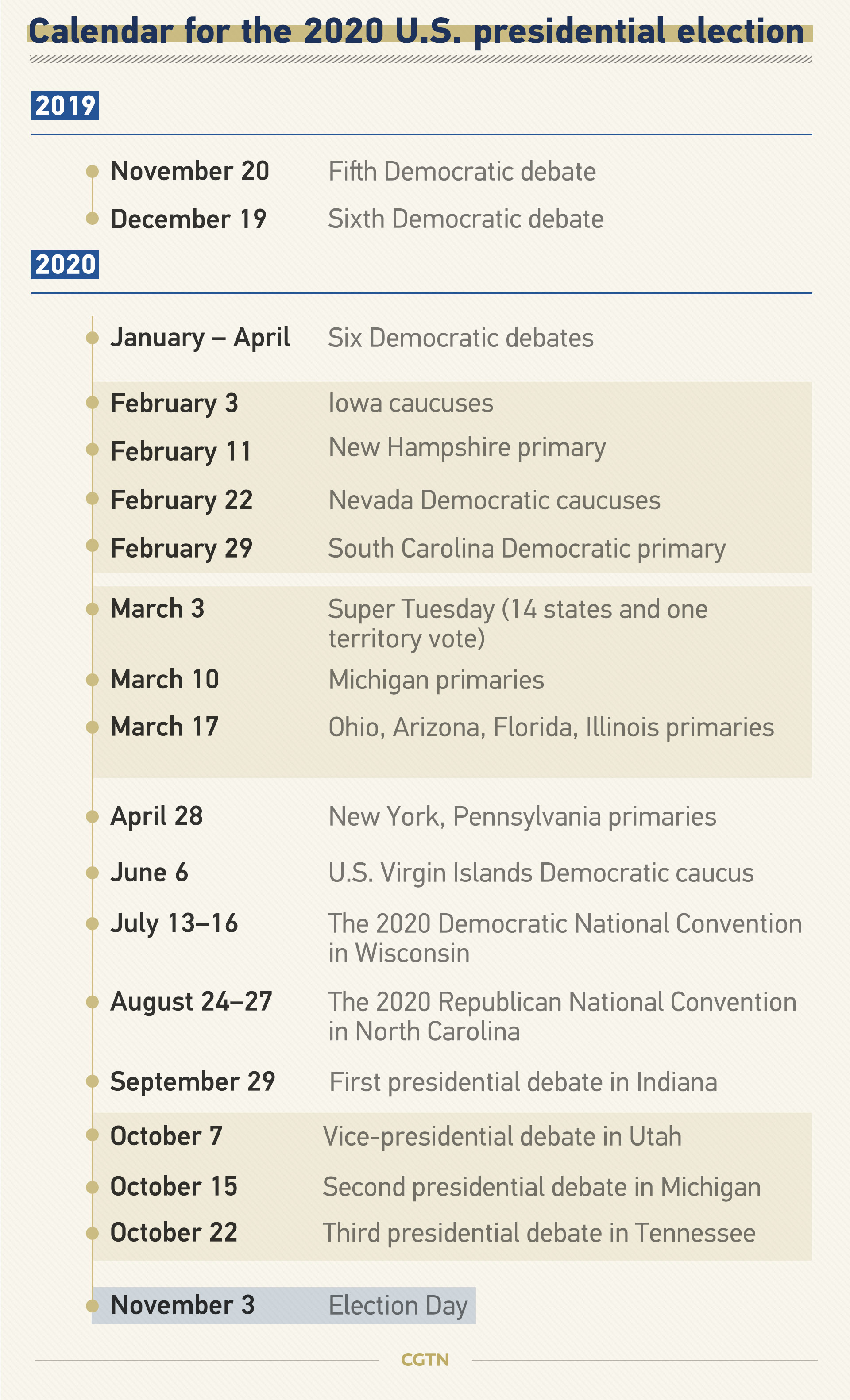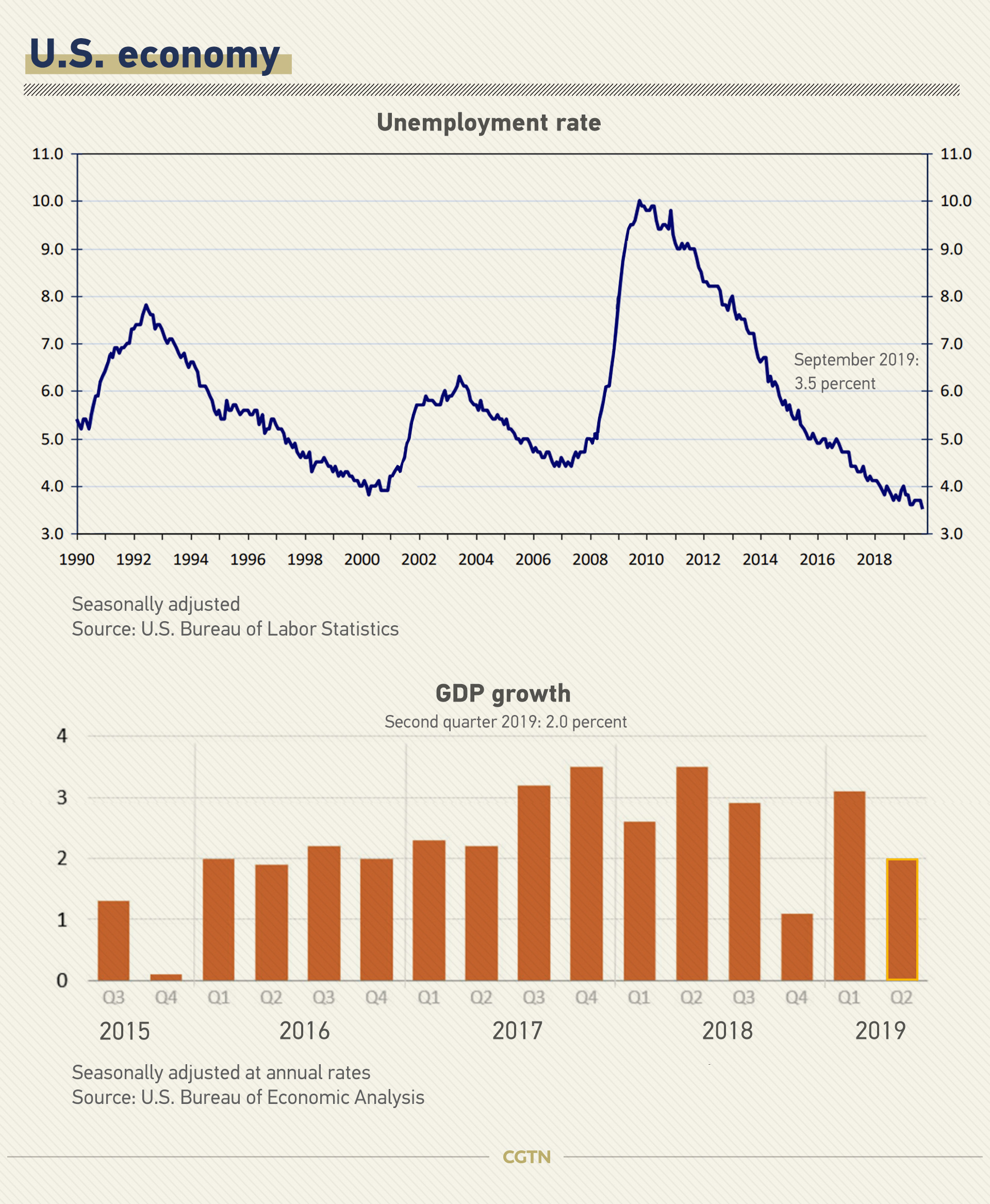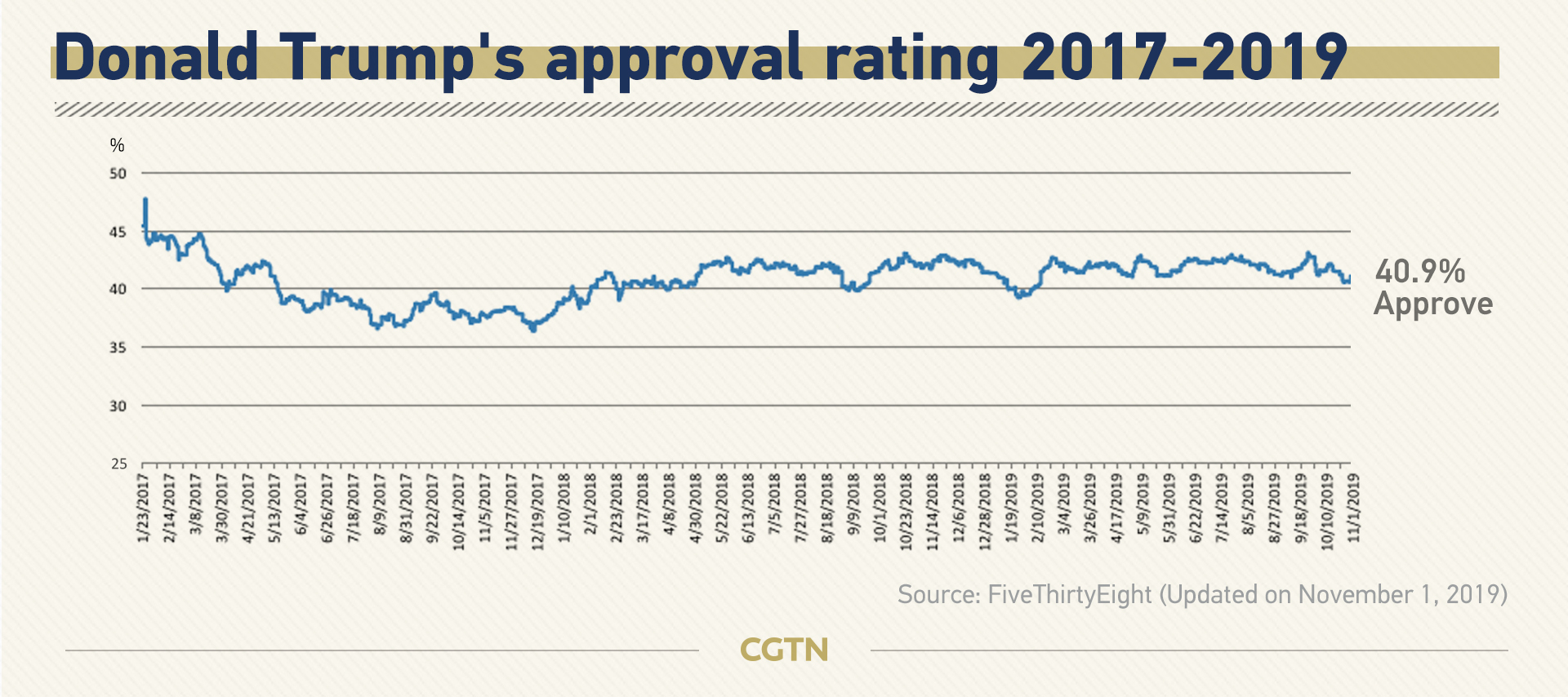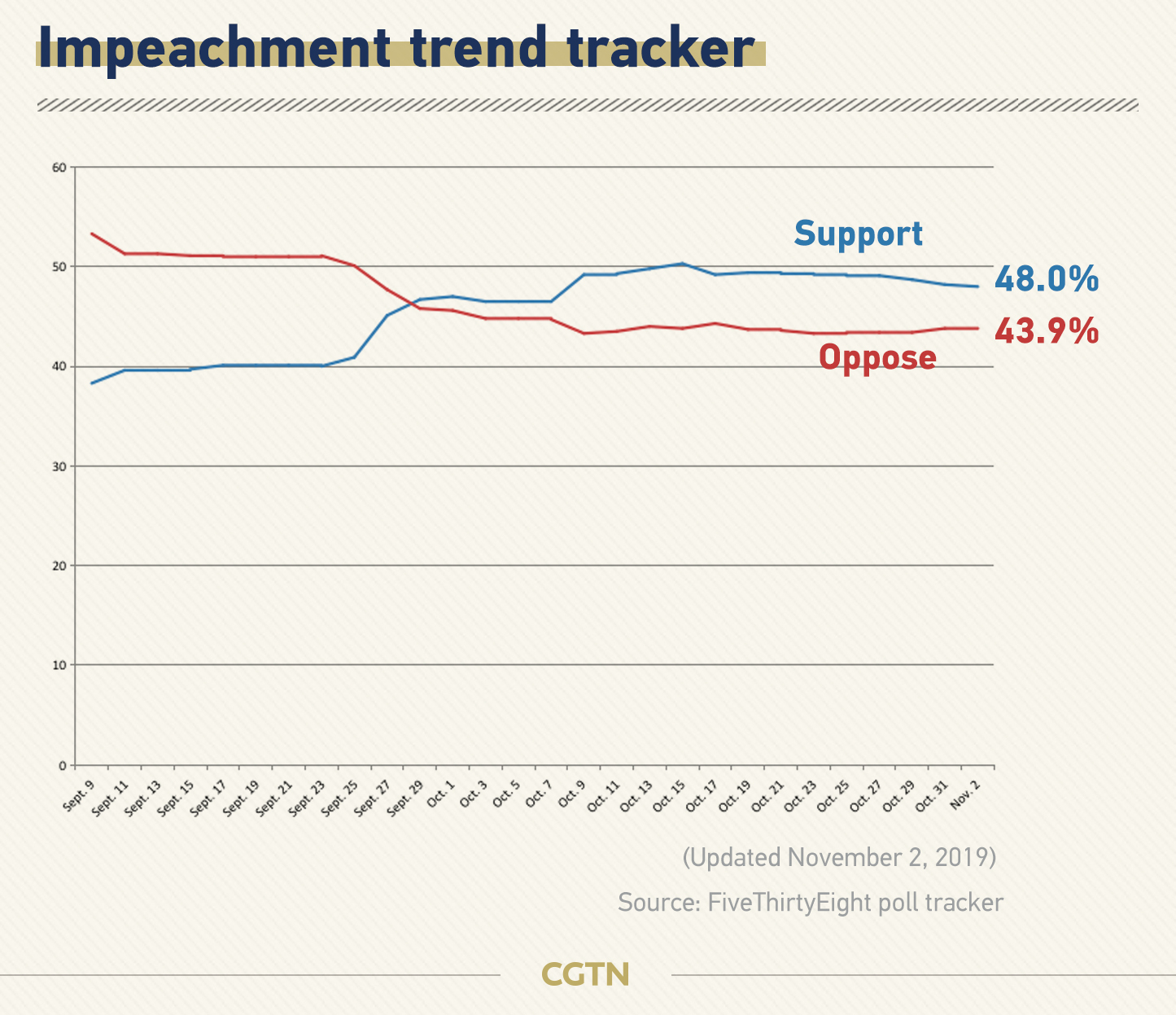Sunday marked exactly one year until the U.S. holds its 2020 elections, which will decide the next U.S. president and control of both houses.
What are the major events to look forward to next year? And how likely will the incumbent U.S. President Donald Trump be re-elected? Here CGTN brings a trailer of the important primary, convention, and debate dates you need to know for the 2020 presidential election.

The 2020 election might seem like a long way off, but Iowans will cast the first votes of the 2020 presidential primaries and caucuses just three months from now.
From February to June, almost all state and U.S. territories will hold a primary election or caucus.
After all the Democratic primary votes are cast, delegates for the candidates will gather at the Democratic National Convention in Milwaukee, Wisconsin, in mid-July.
In September and October of 2020, the Commission on Presidential Debates will host three presidential and one vice-presidential debate.
The general election will be held on November 3.
And on January 20, 2021, Trump will hold his second inauguration, or a new president will be inaugurated for the first time.
The Trump Card
The key factor in presidential elections often lies in the economy. The incumbent president who is running with economic vigor may well be re-elected. The U.S. unemployment rate in September was 3.5 percent, the lowest in half a century. And the economic growth has been stable.

However, Trump is not a politician who can be characterized by regularity.
According to the calculation by the FiveThirtyEight, his average support rating during his tenure has never exceeded the peak in the beginning at 45.5 percent. As of Friday, 40.9 percent of Americans approve of his performance as president, while 54.5 percent disapprove – a net rating of minus 13.6 percent.

House Democrats have been moving ahead with their impeachment investigation since launching the inquiry at the end of September. The inquiry began amid reports that Trump tried to pressure Ukrainian President Volodymyr Zelensky to investigate Biden and his son Hunter.
Trump warned Democrats during a Minnesota rally last month that the impeachment inquiry would backfire in next year's election.
"The Democrats' brazen attempt to overthrow our government will produce a backlash at the ballot box," Trump said. "We will defeat them."
Polling shows that support for his impeachment is growing. The FiveThirtyEight poll tracker updated Saturday showed that 48 percent of Americans approved of the impeachment.

Who will take on Trump?
Among the crowded democratic primary field, former vice president Joe Biden, Massachusetts Senator Elizabeth Warren, Vermont Senator Bernie Sanders, South Bend, Indiana, Mayor Pete Buttigieg, California Senator Kamala Harris are the five democratic candidates now leading the polls.
Biden led the pack with 26.7 percent support as of October 31, followed by Warren (21.3 percent), Sanders (16.8 percent), Buttigieg (7.7 percent) and Harris (4.7 percent), according to RealClearPolitics Average.
While the Democratic field continues to grow, and the candidates scramble for their piece of the fundraising pie, Trump is steadily building up his campaign infrastructure.
He has raised 165.3 million U.S. dollars, followed by Sanders and Warren.
Senate and House Elections
At the same time, 34 seats in the Senate and all 435 seats in the House of Representatives will be contested to produce the 117th Congress of the United States.
Among the 35 Senate seats up in 2020, 23 are held by the Republicans. Democrats will need to gain three or four seats to take control.
Republicans will enter the 2020 elections with a majority of 53 seats in the Senate, while Democrats will enter the election with a majority of 233 seats in the House.
Eleven states and two territorial governorships, as well as numerous other state and local elections, will also be contested.
Graphics by Yin Yating, Li Wenyi